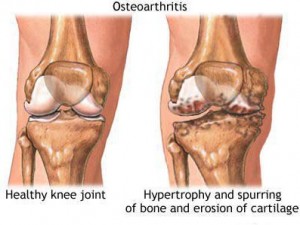Osteoarthritis Disability in Wilmington
 Osteoarthritis is the most common form of arthritis. Normally, osteoarthritis is a generalized disease affecting most of the joints of the body. The protective cartilage on the ends of your bones naturally wears down as we age. This wear can affect the joints in your hands, neck, back, knees and hips. Osteoarthritis is not typically the primary basis for disability claim for people under the age of 50. Even for people over the age of 50, osteoarthritis will normally be one of several other impairments at issue during a Social Security disability hearing.
Osteoarthritis is the most common form of arthritis. Normally, osteoarthritis is a generalized disease affecting most of the joints of the body. The protective cartilage on the ends of your bones naturally wears down as we age. This wear can affect the joints in your hands, neck, back, knees and hips. Osteoarthritis is not typically the primary basis for disability claim for people under the age of 50. Even for people over the age of 50, osteoarthritis will normally be one of several other impairments at issue during a Social Security disability hearing.
Typical symptoms include joint pain during or after movement, joint tenderness, joint stiffness, loss of flexibility, grating sensation when the joint is used and bone spurs. The Social Security Administration will want to know the range of motion (ROM) for the affected joints. Therefore, it is very important that your treating doctor make regular notes detailing the range of motion for each affected joint. To confirm a medical diagnosis of osteoarthritis, your doctor will probably order imaging tests which can prove very useful at a Social Security disability hearing.
In addition to imaging tests, there are also blood or joint fluid tests that can pinpoint the diagnosis of osteoarthritis.
Objective Medical Tests Used to Show Osteoarthritis
| X-rays | the loss of cartilage is shown by a narrowing of the space between the bones in your joint |
| MRI | Shows detailed images of bone and soft tissues including cartilage |
| Blood tests | May help rule out other causes joint pain |
| Joint fluid analysis | Fluid is drawn out of the affected joint – used to verify inflammation and/ or other causes of the pain |
In many osteoarthritis cases before the Social Security Administration, the person is 55 years old or older. Therefore, the Social Security disability hearing will focus on the reasons the person can no longer perform past relevant work. The inability to tolerate frequent lifting, prolonged standing, or repeated manipulation, will be the focus of the hearing. It is extremely important to obtain the opinion of your treating doctor as to your functional limitations in order to present a strong case to the Social Security Administration.
What Our Clients Say:
Member:

Attorney Gregory Kornegay
Greg is a trial attorney in Wilmington with over 30 years of experience. Greg was born and raised in southeastern North Carolina. Before law school he managed a store with employees making a payroll every week. His first job out of law school was as an Assistant District Attorney investigating and trying cases for the State of North Carolina. Through the years he has handled many different types of cases – including death penalty cases.
Being married with children has been a blessing and a challenge, but has served him well in understanding the problems individuals and families face as they live out their lives. Greg believes that each case is different and the needs of each client are unique, but there are certain themes of life that we all share.


